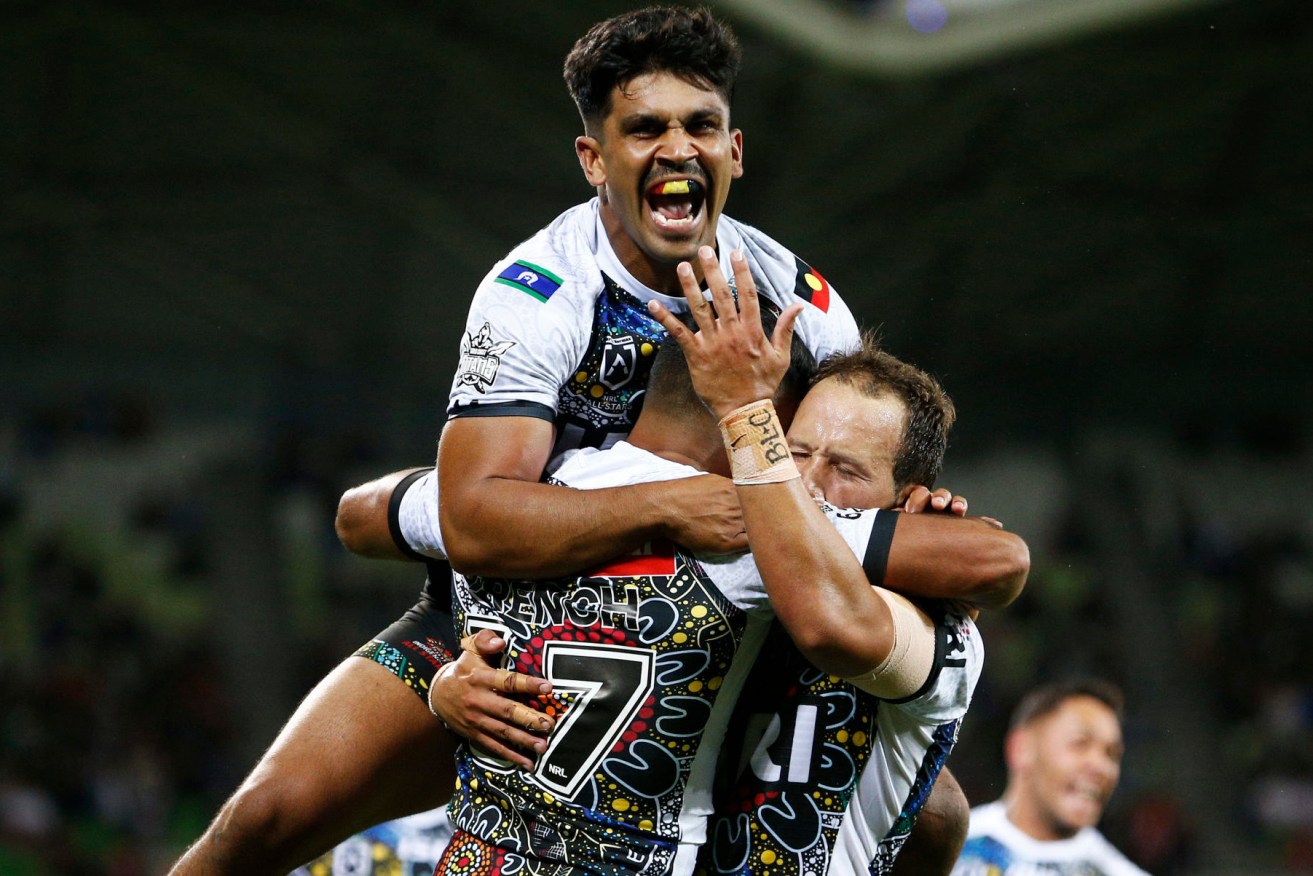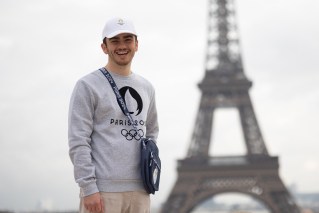Why NRL must continue war on words that wound
Doesn’t Gold Coast Titans rugby league star Tyrone Peachey deserve an apology if he believes he was racially abused? Katrina Beikoff investigates


Tyrone Peachey celebrates during the NRL Indigenous All-Stars vs Maori All Stars match last year. (AAP Image/Daniel Pockett)
The Gold Coast Titans will find out today whether the National Rugby League will take action over claims centre Tyrone Peachey suffered racial abuse marring the final game of the Queensland club’s season at the Gold Coast on Friday.
NRL CEO Andrew Abdo said there was no place for racism in the game. As a result, the NRL’s Integrity Unit is investigating the allegations even though Peachey declined to pursue a formal complaint.
Newcastle Knights player Mitchell Barnett has admitted abusing the Gold Coast and Australian centre during the Titans’ final-round victory on Friday, but denies it was racial.
Barnett was interviewed by the Integrity Unit on Saturday and Peachey spoke to NRL officials about the incident on Sunday.
Despite the denial by Barnett, Peachey is adamant. “I know exactly what I heard and that’s why I reacted the way I did,” Peachey told News Corp.
“It can be put down to ignorance, heat of the competition or lack of education. Either way I won’t stand for it.”
Peachey can’t deliver hard evidence of the alleged abuse. He can’t show the scars. But he can take a stand against racism. He is doing so as “a proud Wiradjuri man,” saying racist comments are not acceptable.
Despite not seeking official sanction against Barnett or the Newcastle club, it has come down to “he said, he said,” with what Peachey heard during the alleged barb, and how that made him feel, being questioned.
Titans CEO Steve Mitchell acknowledged the toll of racial slurs on a player, and said the club was prioritising Peachey’s welfare.
“We’re extremely proud of our Indigenous heritage. The Titans have the highest number of Indigenous players in our top 30 roster of any club in the NRL. The contribution of Indigenous players to our club both on and off the field cannot be understated,” Mitchell said.
“We as a club are committed to eliminating discrimination from our game, and do not stand for any sort of harassment, bullying and victimisation.”
An increasing number of rugby league players are speaking out against racism. There are still those who claim that they don’t think there is racism in rugby league. Of course it’s not just rugby league, there’s those who suggest there’s either no racism in sport or that, even if there is, sport is not a forum in which it should be talked about.
Just this month, newly appointed Dragons coach Anthony Griffin said he didn’t think there was any racism in rugby league and claimed the annual Indigenous All Stars game had become “too politicised.”
Yet it is rugby league where some of the strongest action against racism has recently been occurring. In the past few weeks, St George Illawarra CEO Ryan Webb unreservedly apologised to former star Nathan Blacklock, who revealed he was driven away from the club in 2002 due to racism.
Blacklock told Nine Newspapers he wanted to keep playing with the Dragons and fulfil his career as a one-club player, but inherent racism in the club was “like a dagger to the heart” and “there’s only so much you can take”.
In July, Broncos CEO Paul White offered an unreserved apology to super centre Steve Renouf and any other past Indigenous players who may have experienced racism. Renouf, who played in four premiership wins for the club, told of ongoing racism in an in-depth special for NRL.com.
Earlier this season, Penrith player Brent Naden called out racist abuse by supporters in a game against the Warriors. The spectators were marched from Central Coast Stadium in Gosford around halftime after Naden complained about the sustained harassment and vilification.
At state and community level rugby league, the majority of the Newcastle and Hunter Rugby League board stood down last week over claims the NSWRL failed to adequately deal with allegations of racism that led to a vicious brawl involving two of its teams.
“Our Newcastle and Hunter Rugby League board has elected to step down in response to what they see as not timely enough action responding to allegations of racial vilification and other related acts breaching the code of conduct,” the officials said.
“The board applauds the NSWRL on its prompt action to deal with the violence of the weekend but believe the time it has taken to address concerns and allegations of vilification is not adequate.”
If codes and clubs are committed to eliminating racial vilification and discrimination for the game, continuing to support those who call it out and acknowledge the impact of it on an individual is a vital part of the process.












